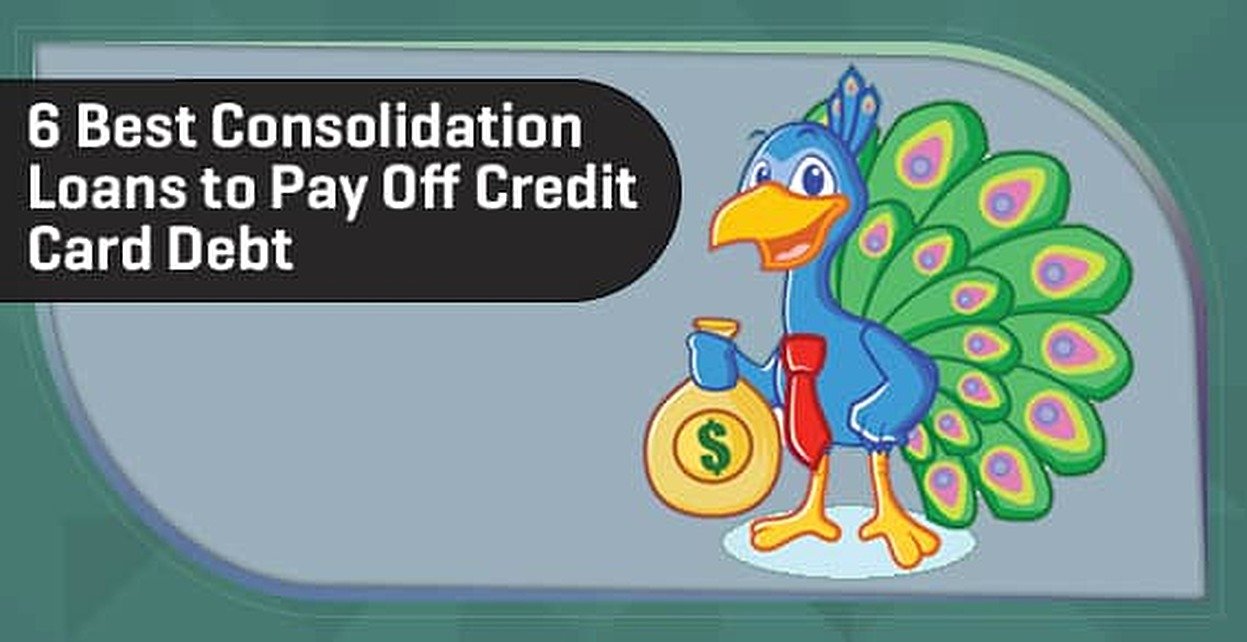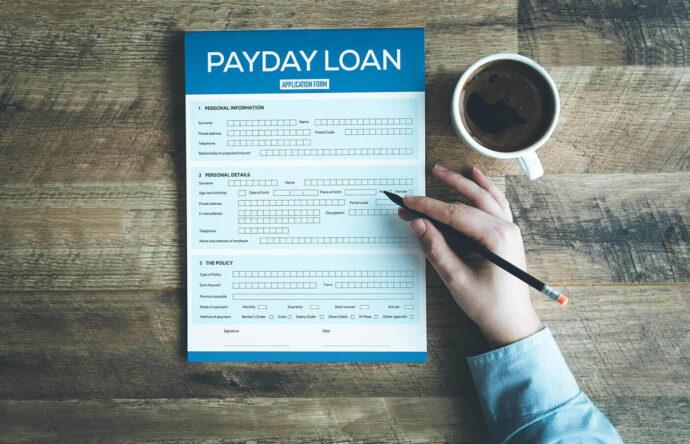
Debt consolidation refers to the process by which multiple loans are paid off with one loan. While the term typically refers to the personal financial process of individuals, it can also refer to a country's fiscal approach to consolidating debt. Debt consolidation has several benefits. They offer lower interest rates and lower monthly payment.
Reduction in interest
Consolidating your debt can make it easier to pay off your debt faster. Because a lower interest rates means that more of your monthly payment goes towards the debt itself, and less goes towards interest. This will allow you to have more money for other goals. You can use this money to save for emergencies, buy gifts for your family or do anything else you wish. The type of debt and credit score will determine how much money you can save.

Monthly payments lower
If you have multiple credit cards and loans with high interest rate debt consolidation is an option. This option helps you manage your multiple monthly payments and save money on interest charges. However, there are some drawbacks. However, debt consolidation doesn't eliminate your debt. Also, it doesn't address your behavior that contributed to your debt. This option might not be for you if your problem with overspending is a concern.
Reduces the risk for lenders
If you are looking for a loan that will consolidate all of your debt, there are some important things you should know. The loan will impact your credit score and may be more costly than debt consolidation using a credit card. If you have good credit, you may be eligible to receive lower interest rates. This will help you save money over the long-term. When consolidating debt, another important factor to consider is your ability and willingness to make the new monthly payments. Don't consolidate debt if it is impossible to repay your loan on-time.
Impact on credit score
Consolidating debt can have both a positive or negative effect on your credit score. You can offset the negative impact of debt consolidation by opening new lines of credit or loans to pay off older ones. It is important to keep your oldest credit cards open. Also, pay off high interest debts. Your credit rating will be negatively affected if your debt is higher than you can pay.
Good credit is a good idea
Consolidating debt involves taking out one loan to repay multiple loans. Often this will involve a personal loan or balance transfer credit card. It can have a beneficial or negative impact on credit scores depending on the type of consolidation. A new account opening will affect the average age and make it more difficult for you to build your credit history. In contrast, keeping all your existing accounts open can help your credit score.

Drawbacks
Although debt consolidation offers many benefits, there are also some downsides. It does not guarantee you won't get into debt again. People who live beyond their means in the past will most likely continue doing so after consolidating their debt. You can avoid falling into this trap by setting a realistic budget and saving money for any unexpected costs. Second, determine your spending patterns that lead to debt and make changes.
FAQ
How to build a passive income stream?
To consistently earn from one source, you need to understand why people buy what is purchased.
It is important to understand people's needs and wants. You must learn how to connect with people and sell to them.
You must then figure out how you can convert leads into customers. To keep clients happy, you must be proficient in customer service.
Although you might not know it, every product and service has a customer. Knowing who your buyer is will allow you to design your entire company around them.
A lot of work is required to become a millionaire. To become a billionaire, it takes more effort. Why? It is because you have to first become a 1,000aire before you can become a millionaire.
Then, you will need to become millionaire. Finally, you must become a billionaire. You can also become a billionaire.
How does one become billionaire? Well, it starts with being a thousandaire. To achieve this, all you have to do is start earning money.
You have to get going before you can start earning money. Let's discuss how to get started.
What is the fastest way you can make money in a side job?
If you want to make money quickly, it's not enough to create a product or a service that solves an individual's problem.
Also, you need to figure out a way that will position yourself as an authority on any niche you choose. It is important to establish a good reputation online as well offline.
Helping other people solve their problems is the best way for a person to earn a good reputation. Consider how you can bring value to the community.
Once you have answered this question, you will be able immediately to determine which areas are best suited for you. There are countless ways to earn money online, and even though there are plenty of opportunities, they're often very competitive.
However, if you look closely you'll see two major side hustles. One type involves selling products and services directly to customers, while the other involves offering consulting services.
Each approach has pros and cons. Selling products and services can provide instant gratification since once you ship the product or deliver the service, payment is received immediately.
However, you may not achieve the level of success that you desire unless your time is spent building relationships with potential customers. In addition, the competition for these kinds of gigs is fierce.
Consulting allows you to grow and manage your business without the need to ship products or provide services. However, it can take longer to be recognized as an expert in your area.
In order to succeed at either option, you need to learn how to identify the right clientele. This can take some trial and error. But, in the end, it pays big.
Why is personal financing important?
For anyone to be successful in life, financial management is essential. We live in a world with tight finances and must make tough decisions about how we spend our hard earned cash.
Why then do we keep putting off saving money. Is it not better to use our time or energy on something else?
Yes and no. Yes, most people feel guilty saving money. Because the more money you earn the greater the opportunities to invest.
Focusing on the big picture will help you justify spending your money.
Financial success requires you to manage your emotions. Negative thoughts will keep you from having positive thoughts.
Unrealistic expectations may also be a factor in how much you will end up with. This is because your financial management skills are not up to par.
Once you've mastered these skills, you'll be ready to tackle the next step - learning how to budget.
Budgeting refers to the practice of setting aside a portion each month for future expenses. Planning will save you money and help you pay for your bills.
Once you have mastered the art of allocating your resources efficiently, you can look forward towards a brighter financial tomorrow.
What is personal finances?
Personal finance is the art of managing your own finances to help you achieve your financial goals. It involves understanding where your money goes, knowing what you can afford, and balancing your needs against your wants.
These skills will allow you to become financially independent. This means that you won't have to rely on others for your financial needs. You can forget about worrying about rent, utilities, or any other monthly bills.
It's not enough to learn how money management can help you make more money. It can make you happier. If you are happy with your finances, you will be less stressed and more likely to get promoted quickly.
Who cares about personal finances? Everyone does! Personal finance is one the most sought-after topics on the Internet. Google Trends reports that the number of searches for "personal financial" has increased by 1,600% since 2004.
People now use smartphones to track their money, compare prices and create wealth. These people read blogs like this one and watch YouTube videos about personal finance. They also listen to podcasts on investing.
Bankrate.com estimates that Americans spend on average 4 hours per day viewing TV, listening to music and playing video games, as well reading books and talking with friends. Only two hours are left each day to do the rest of what is important.
You'll be able take advantage of your time when you understand personal finance.
How can rich people earn passive income?
If you're trying to create money online, there are two ways to go about it. Another way is to make great products (or service) that people love. This is known as "earning" money.
The second is to find a method to give value to others while not spending too much time creating products. This is "passive" income.
Let's say you own an app company. Your job is to create apps. You decide to make them available for free, instead of selling them to users. Because you don't rely on paying customers, this is a great business model. Instead, your advertising revenue will be your main source.
To sustain yourself while you're building your company, you might also charge customers monthly fees.
This is how most successful internet entrepreneurs earn money today. Instead of making money, they are focused on providing value to others.
How much debt is considered excessive?
It's essential to keep in mind that there is such a thing as too much money. If you spend more than you earn, you'll eventually run out of cash because it takes time for savings to grow. So when you find yourself running low on funds, make sure you cut back on spending.
But how much is too much? There's no right or wrong number, but it is recommended that you live within 10% of your income. Even after years of saving, this will ensure you won't go broke.
This means that you shouldn't spend more money than $10,000 a year if your income is $10,000. If you make $20,000 per year, you shouldn't spend more then $2,000 each month. And if you make $50,000, you shouldn't spend more than $5,000 per month.
The key here is to pay off debts as quickly as possible. This applies to student loans, credit card bills, and car payments. After these debts are paid, you will have more money to save.
You should consider where you plan to put your excess income. If you decide to put your money toward stocks or bonds, you could lose money if the stock market falls. You can still expect interest to accrue if your money is saved.
Let's take, for example, $100 per week that you have set aside to save. In five years, this would add up to $500. At the end of six years, you'd have $1,000 saved. You would have $3,000 in your bank account within eight years. When you turn ten, you will have almost $13,000 in savings.
In fifteen years you will have $40,000 saved in your savings. It's impressive. You would earn interest if the same amount had been invested in the stock exchange during the same period. Instead of $40,000 in savings, you would have more than 57,000.
That's why it's important to learn how to manage your finances wisely. You might end up with more money than you expected.
Statistics
- According to a June 2022 NerdWallet survey conducted online by The Harris Poll. (nerdwallet.com)
- 4 in 5 Americans (80%) say they put off financial decisions, and 35% of those delaying those decisions say it's because they feel overwhelmed at the thought of them. (nerdwallet.com)
- U.S. stocks could rally another 25% now that Fed no longer has ‘back against the wall' in inflation fight (marketwatch.com)
- As mortgage rates dip below 7%, ‘millennials should jump at a 6% mortgage like bears grabbing for honey' New homeowners and renters bear the brunt of October inflation — they're cutting back on eating out, entertainment and vacations to beat rising costs (marketwatch.com)
- According to the company's website, people often earn $25 to $45 daily. (nerdwallet.com)
External Links
How To
How to Make Money Online
It is much easier to make money online than it was 10 years ago. Your investment strategy is changing. Although there are many options for passive income, not all require large upfront investments. Some methods can be more challenging than others. You should be aware of these things if you are serious about making money online.
-
Find out what type of investor are you. If you're looking to make quick bucks, you might find yourself attracted to programs like PTC sites (Pay per click), where you get paid for simply clicking ads. You might also consider affiliate marketing opportunities if your goal is to make long-term money.
-
Do your research. Do your research before you sign up for any program. Review, testimonials and past performance records are all good places to start. You don't want to waste your time and energy only to realize that the product doesn't work.
-
Start small. Don't just jump right into one big project. Instead, you should start by building something small. This will allow you to learn the ropes and help you decide if this business is for you. Once you feel confident enough to take on larger projects.
-
Get started now! It's never too late to start making money online. Even if you have been working full-time for years you still have time to build a strong portfolio of niche websites. All that's required is a good idea as well as some commitment. You can take action right now by implementing your ideas.